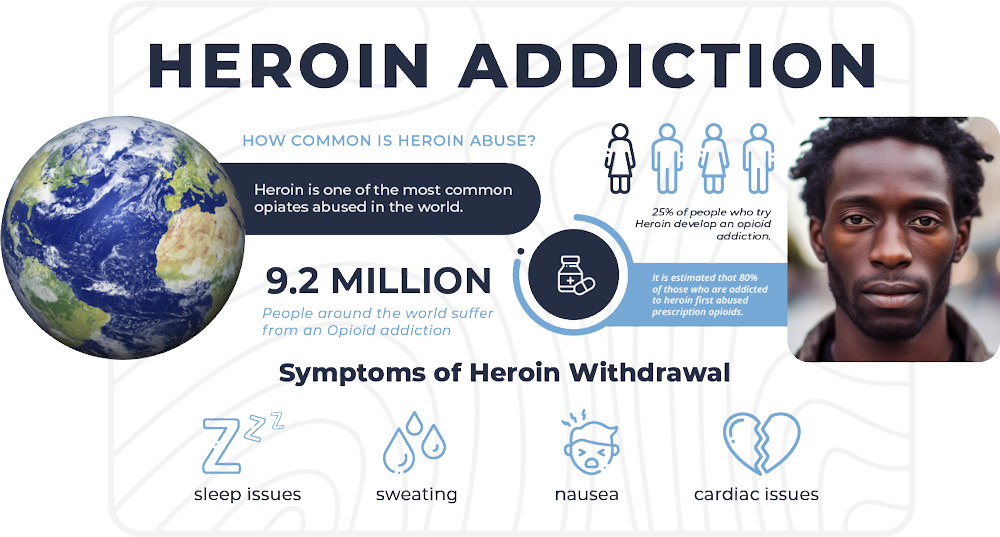Heroin is an illegal recreational drug that is in the opioid class. It is a highly addictive substance made from opium poppy sap. Describing it does not answer the question, “is heroin a stimulant?” What this does do is shed light on how the initial effects of well-being can turn into cravings and dependency.
At Crestview Recovery, we offer a heroin addiction rehab treatment program and more to help you in recovery. Call and speak to one of our team members for more information about our addiction treatment programs.
Difference Between a Stimulant and a Depressant
Also helpful with understanding is knowing the difference between a stimulant and a depressant. Most addictive drugs fall under these two general classes. The names of both indicate how a person responds to the effects of each class.
A stimulant arouses the central nervous system. This category of drugs amplifies processes in the brain and body. For example, most stimulant drugs affect the central nervous system, heightening the release of dopamine to increase a person’s alertness, attention, and energy. Stimulant addiction rehab helps limit or quit use of stimulants such as nicotine or meth and provides supportive care to heal your mind and body.
Depressants have the opposite effect. These drugs slow down the central nervous system and all body parts that it controls. They can slow a person’s heart rate, breathing, and brain activity. Depressants work by binding to GABA receptors, which are inhibitory neurotransmitters that reduce neuron activity.
Different types of depressants include alcohol, barbiturates, benzodiazepines, and opioids. Some examples of stimulants include cocaine, methamphetamine, and nicotine. In general, people use depressants to relax while people use stimulants to feel more alert and energetic.
Is Heroin a Stimulant?
The short answer to “is heroin a stimulant” is no. Heroin is a depressant that slows down functions of the body controlled by the central nervous system. Heroin affects brain function and breathing to the point of slowing down or stopping both.
Body temperature and blood pressure can drop. A person’s heartbeat can become irregular. It is not uncommon for them to lose consciousness or even lapse into a coma. The person will need help from a substance use treatment program to reverse its effects.
Heroin is an opioid (also known as a narcotic) drug processed from morphine and extracted from the poppy plant. Heroin is often “cut” with other drugs like fentanyl or household substances like sugar or powdered milk. As a result, users are unaware of how much actual heroin is being used, increasing the likelihood of overdose. The degree to which heroin affects a person depends on different factors such as:
- Strength of dose
- Other drugs taken at the same time
- The person’s size and weight
- Their general state of mind
- Presence of health conditions
Immediate Effects of Taking Heroin
A person experiences a rush of pleasurable feelings when taking heroin. However, seeking relief from physical pain turns into some not-so-pleasant physical symptoms. They may feel sick and start vomiting. Loss of sex drive and narrowing of pupils may also occur.
Some changes become irreversible over long-term use. Coupled with these changes are the risks of building tolerance and dependence.
Tolerance occurs when more and more of the drug is needed to get the same effect. As dependence builds, larger doses are required just to feel “normal” and avoid withdrawal symptoms.
Withdrawal symptoms can include:
- Anxiety
- Muscle aches
- Insomnia
- Nausea
- Abdominal pain
- Diarrhea
- Dilated pupils
- Runny nose
- Cold sweats
- Yawning
- Lacrimation (tearing)
These effects are just the beginning. The heroin withdrawal timeline may include collapsed veins, infection of the heart lining and valves, abscesses, and liver disease. Chronic users may also experience pulmonary complications, including various types of pneumonia.
The True Dangers of Depressants
When you find out the answer to, “Is heroin a stimulant?,” it’s important to understand that it’s still just as dangerous as other substances. Depressant drugs like heroin pose a threat for overdose. Heroin is dangerous on its own. It becomes more problematic when mixed with other drugs to intensify its euphoric effects. This is because it is a huge risk of slowing down the central nervous system.
Doing this can lead to an overdose where the person’s breathing slows. Overdosing on depressants prevents oxygen from reaching vital organs like the brain. In a short time, a person can suffer brain damage, fall into a coma, or even die.
If you or someone you know is struggling with depressant misuse, it’s important to get help as soon as possible. There are a variety of treatment options available that can help people overcome addiction and live a healthy, sober life.
Don’t Let Heroin Control Your Life

Finding out if heroin is a stimulant is only part of overcoming an addiction. Getting help is just as critical. Crestview Recovery offers effective evidence-based treatment methods to ensure you receive the best care for your addiction.
Our drug rehab center includes:
- Dual diagnosis treatment
- Individual therapy
- Trauma therapy
At last, put an end to your addiction today by calling our facility today. We will guide you toward the path of recovery, so call now.
































